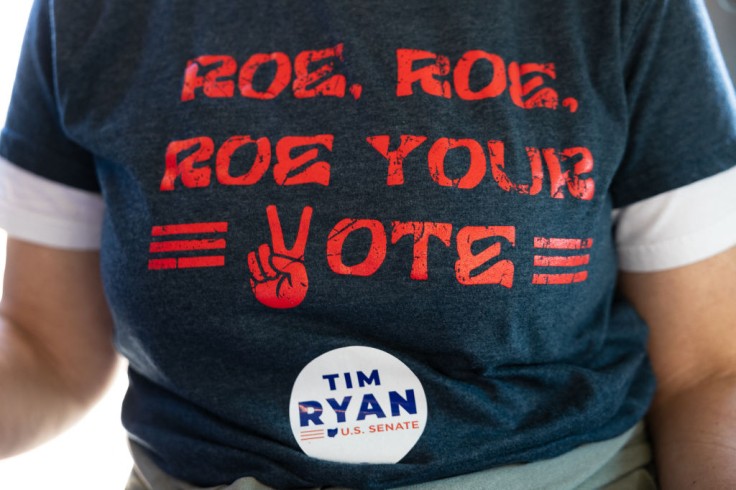
The Ohio Supreme Court has taken center stage in an unfolding legal drama over a citizen-initiated abortion referendum in Ohio, known as Issue 1.
Ohioans United for Reproductive Rights and five other petitioners have filed a lawsuit, challenging the Ohio Ballot Board's decision to use the term "unborn child" in the referendum's language, thereby intensifying the debate over reproductive rights in the state.
A Complex Legal Battle at the Ohio Supreme Court
The 137-page lawsuit lodged before the Ohio Supreme Court argues that the ballot language, approved by the Ohio Ballot Board and drafted by GOP Secretary of State Frank LaRose, is "irreparably flawed."
It asks the court to mandate the board to either adopt the full text of the constitutional amendment as the ballot language or revise it in a way that "properly and lawfully describes the amendment."
The Ohio Supreme Court's ruling could significantly impact how Ohioans interpret the abortion referendum come November 7.
Frank LaRose, who chairs the five-member Ballot Board and is also a Republican Senate candidate, has been vocal in his opposition to Issue 1.
The board's contentious decision came as a 3-to-2 vote, with LaRose among those in favor of the altered language.
The Controversial Term "Unborn Child" and Its Implications
The Ohio Ballot Board's revised language, including the term "unborn child," appears four times on the ballot.
This term, a rallying point for anti-abortion activists, was not in the original wording.
The lawsuit points out that adding "unborn child" veers the conversation toward an ethical debate on when life starts, diverting from the referendum's actual scope.
According to the plaintiffs, this altered language fails to capture the comprehensive reach of the constitutional amendment, which covers five categories of reproductive health decisions, not just abortion.
They argue that the term "unborn child" introduces an ethical judgment, a matter on which Ohioans are deeply divided.
Issue 1 seeks to establish "the right to reproductive freedom with protections for health and safety" in the Ohio Constitution.
It would guarantee residents the ability to make choices about contraception, fertility treatments, miscarriage care, and, of course, abortion.
However, the amendment also allows Ohio to prohibit abortion after fetal viability-generally around 22 to 24 weeks-unless the mother's life or health is at risk.
According to the Ohio Ballot Board's language, it would create legal protections for individuals or entities assisting someone in obtaining reproductive medical treatment, including abortion.
Read Also: Pregnant Woman Fatally Shot in Ohio Parking Lot for Shoplifting in Case of Mistaken Identity
Questioning the Legitimacy of Ballot Language
The lawsuit contends that the language crafted by the board is factually inaccurate and twists the amendment's text and meaning, making it unlawful. They assert that the complex wording is part of a "deliberate attempt to mislead and sway Ohio voters."
Interestingly, Ohio law allows for "condensed text" on ballots to describe a constitutional amendment. Yet, the full text of Issue 1 is actually shorter than the summary endorsed by the board-194 words compared to the summary's 203 words.
The push for this constitutional amendment began after the Supreme Court overturned Roe v. Wade in June 2022.
If Ohio voters approve Issue 1, Ohio would join several other states, including traditionally red ones, in protecting abortion rights.
A July poll indicates that 58% of likely Ohio voters support the amendment, which requires only a simple majority for approval.
As the November 7 deadline approaches, the lawsuit at the Ohio Supreme Court epitomizes the broader, ongoing struggle over reproductive rights, not just in Ohio but nationwide.
The court's ruling on the term "unborn child" in the abortion referendum will set a precedent that may influence similar cases for years to come.
Related Article